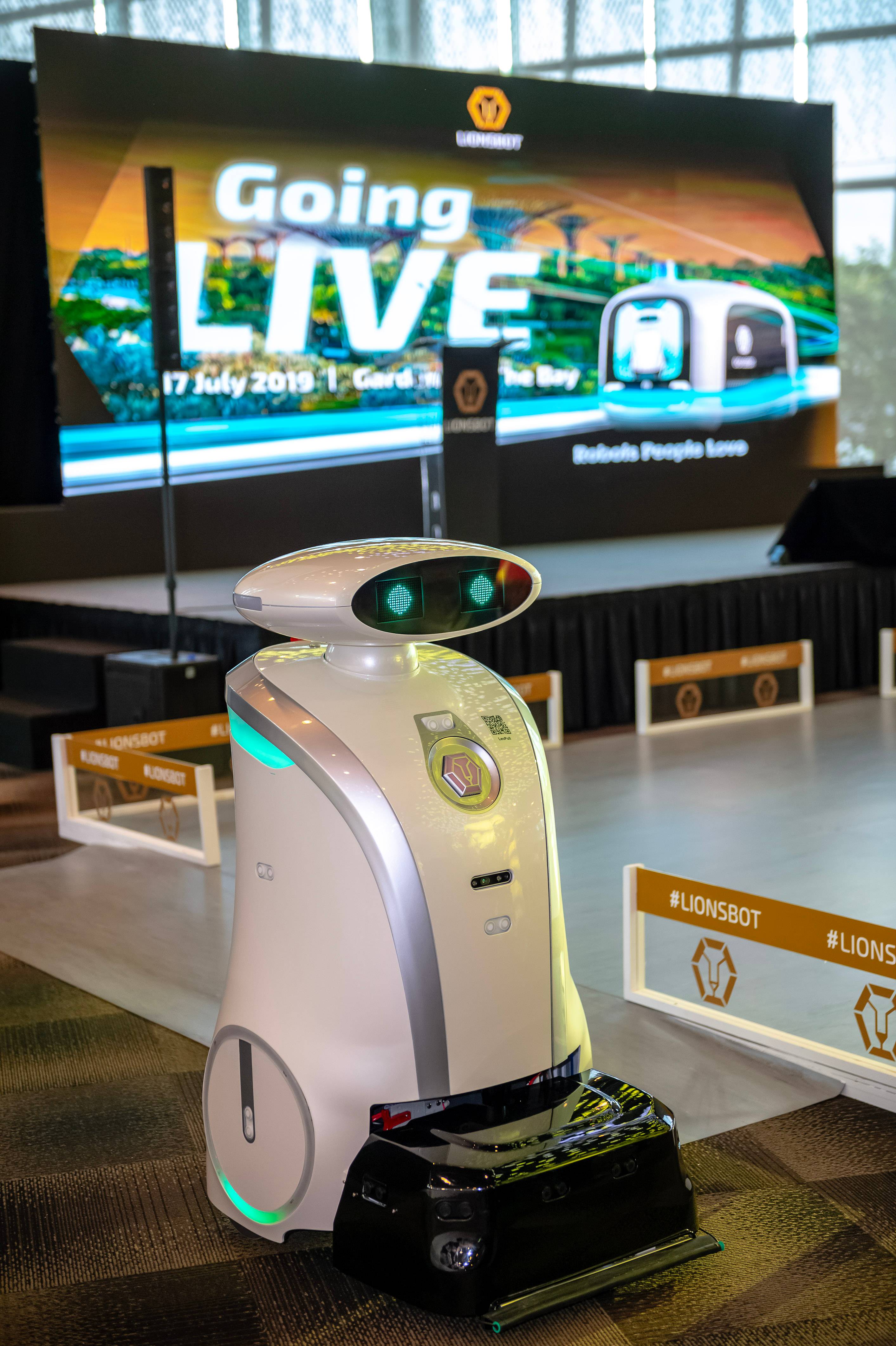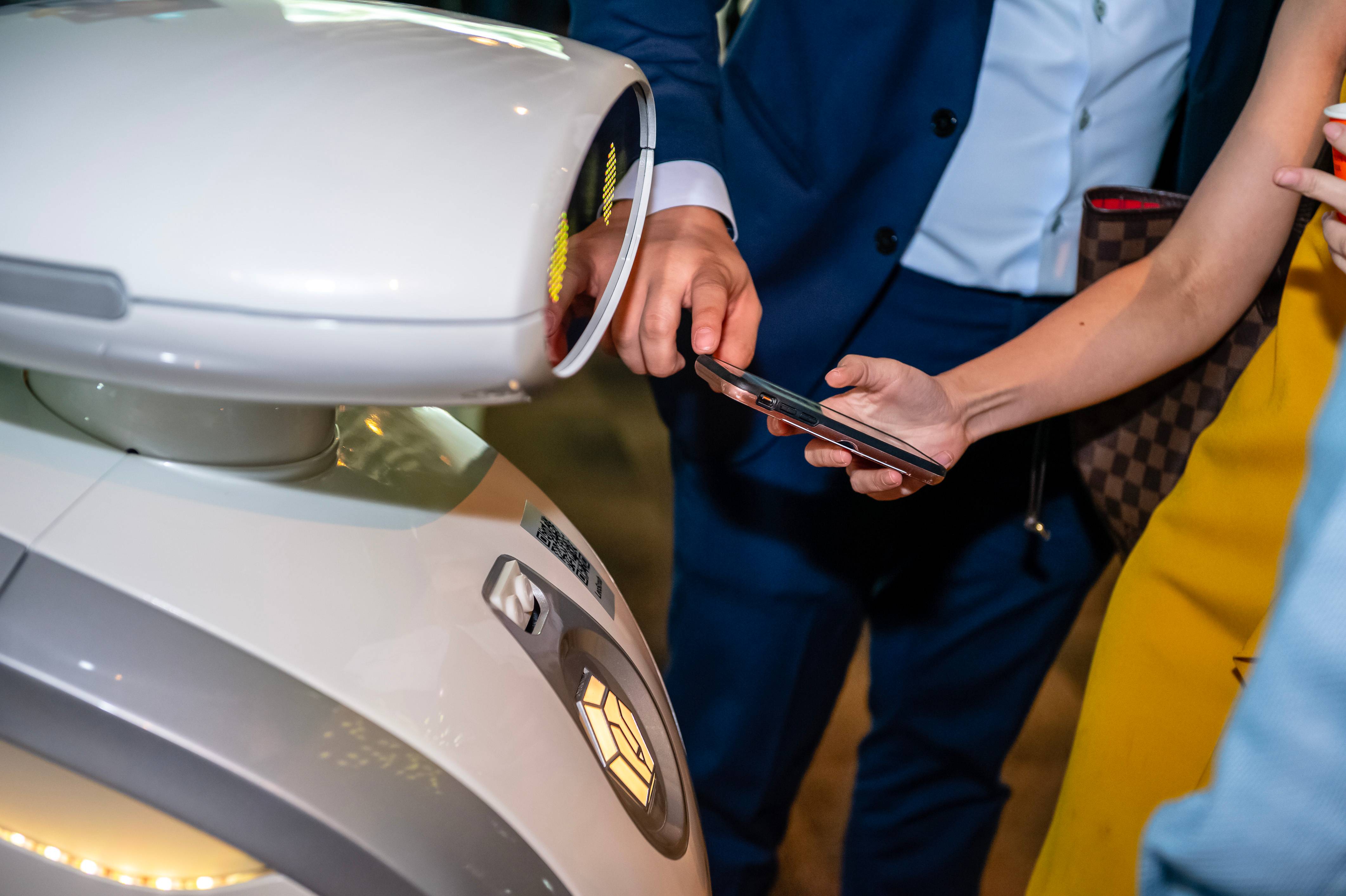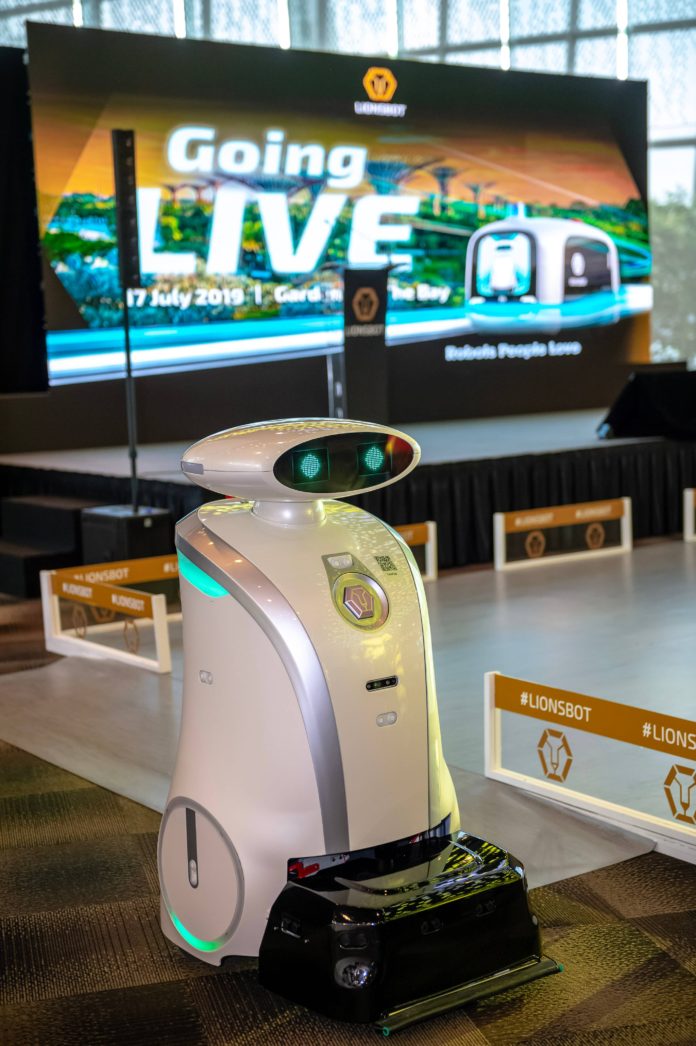SINGAPORE: They can mop and scrub, “sing and rap” and even make “jokes” at passers-by – meet the cleaning robots that will soon be deployed by several companies.
About 300 of these robots will be produced by LionsBot International, which said it is the world’s first company to offer cleaning robots on a subscription model.
This means companies looking to use the robots will not need to invest in the ownership and maintenance of the machines.
Launching the local production of the robots on Wednesday (Jul 17), LionsBot said six cleaning partners will deploy the robots by March 2020.

The LionsBot cleaning robots will be able to rap and wink at passers-by. (Photo: LionsBot)
LionsBot said its robots use up to 70 per cent less water compared to existing cleaning solutions, and can work together as a team.
“Multiple cleaning robots are able to coordinate and clean a given area simultaneously, without the need for human programming,” it said in a media release.
The robots have also been programmed with “warm personalities”.
“They are able to wink at passers-by and also make jokes if the latter gets in the way of their cleaning duties,” said LionsBot.
By scanning the robot’s QR code, members of the public will also be able to interact with the machine by asking questions such as “What is your name?” or “What type of cleaning do you perform?”.

Members of the public will be able to interact with the autonomous machine by scanning the robot’s QR code. (Photo: LionsBot)
There are 13 different models of the robot.
Those from the LeoBot Family series, for instance, are designed to clean narrow spaces and have a tight turning radius to navigate obstacles. Robots from the LeoPod Family series were created for open spaces such as shopping mall atriums where there are fewer obstacles.
Cleaning companies and building owners can rent any of LionsBot cleaning robots at monthly fees ranging from S$1,350 to S$2,150.
LionsBot has developed different cleaning robot series to cater to different needs. (Photo: LionsBot)
At the launch event at Gardens by the Bay, Senior Minister of State for the Ministry of Trade and Industry Koh Poh Koon said such technology has huge potential to raise productivity, adding that the Government will continue to support the deployment of robotics solutions across different industries.
He noted that in 2016, Singapore launched the National Robotics Programme (NRP) to coordinate the development, test-bedding and deployment of robotics solutions.
“We are making good progress,” said Dr Koh. “Today, Singapore has a growing base of robotics companies, research institutes, commercial system integrators and training providers to design, develop and enable the adoption of robotics solutions for industries.”
He added that since the launch of the NRP, Singapore’s robotics ecosystem has secured new investments that will contribute more than S$300 million in value-add and create 1,000 new jobs over the next five years.





